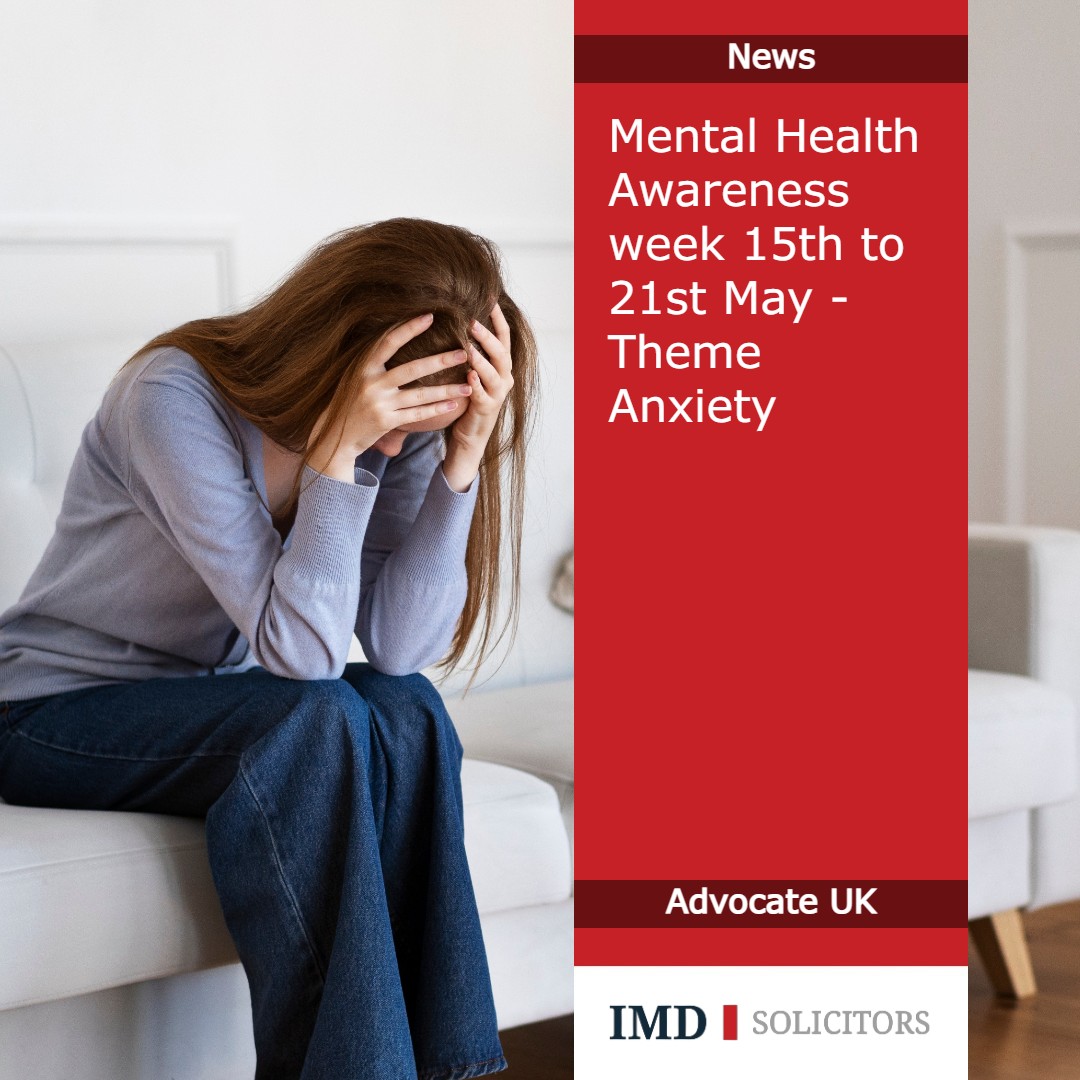
Mental Health Awareness week 15th to 21st May 2023 focuses on anxiety. The aim of this piece is to help you recognise the signs and symptoms of anxiety in yourself and those around you.
There are some myths around anxiety which we all need to be aware of. For example, not all anxiety related symptoms are obvious, and not all anxiety related symptoms are dangerous.
We all experience this and anxiety is part of life. It is a natural response to life’s common issues, such feeling anxious just before a driving test or before going on a first date. Anxiety can be mild in degree so a sense of uneasiness to severe, such as a panic attack or an anxiety disorder.
Signs and symptoms can be physical, psychological, and behavioural. Hypertension, excessive sweating, or feeling nervous, dizziness, stomach issues, shortness of breath, dry mouth, headaches, muscle pain are a few examples of the physical symptoms.
An inability to focus or concentrate, inability to relax, catastrophising or confusion, avoidance issues, withdrawing from activities this person would normally engage in, phobias, eating disorders, repetitive thoughts, and a sense of feeling stuck and out of control. These are a few examples of the psychological and behavioural symptoms.
Mental health first aiders use the ALGEE Framework which might be useful to bear in mind when you are supporting yourself, and others.
A – Approach, assess and assist
L – listen with compassion and in a non-judgemental way. Be an active listener with empathy.
G – Give support and information, not advice.
E – encourage professional medical support if necessary.
E – encourage other support such as self-help, reducing alcohol intake, rest and more sleep.
On a final note, most anxiety passes but sometimes it requires professional medical attention. Anxiety is not something we should feel ashamed about but it is important we are able to help ourselves and those around us as best as we can. As this way the person feeling anxious will feel supported.
If you find yourself feeling anxious at work or you see a colleague who might be in need of help speak to your Mental Health First Aider but do not suffer in silence.
Daxa Patel, Solicitor & Partner, and the IMD Mental Health First Aider.
This article is for general information only and does not constitute legal or professional advice. Please note that the law may have changed since this article was published.